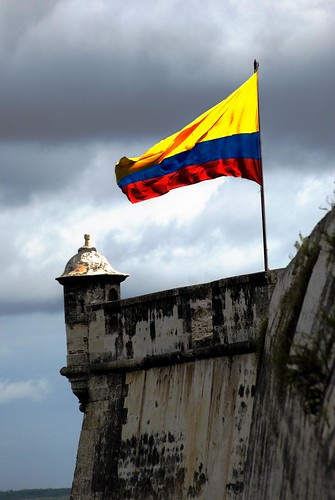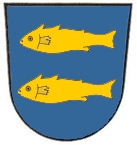
They tell that, almost 200 years ago, Royal Comissioner’s Antonio Villavicencio, was coming to Santa Fe (of Bogota). Two Creoles that were preparing its reception asked a spaniard for a vase. This spaniard denied and they all started to argue, and then to fight.
It seems that the ambient was quite hot these days, because they were planning a revolt just taking advantage from this visit. So they end to the palace shouting "¡Viva el rey Fernando VII y abajo el mal gobierno!" (Hail to the kind Ferdinand VII and down with the bad goverment!). Some leaders as José Acevedo y Gómez, José María Carbonell and Camilo Torres took the initiative and got to the constitution of a government made with creoles, but with the viceroy in charge.
They were proclaming their independence from Spain.
Then came the time of the “Patria Boba” (Silly Homeland) and the Spanish re-conquer, once the king Ferdinand VII recovered his crown and Spain was no more invaded by french troops, the year 1815. But 4 years after came Simón Bolívar and these American lands recovered its liberty, but this is another story.
Este es el motivo de tanta fiesta y baile que hoy reunirá a todos los que sientan como propia la bandera tricolor o, al menos, tenga ganas de fiesta y jarana.
But there are some things I cannot avoid mentoning, as a catalan.
There’s first the historical context, because just at the very same time that these future colombians were fighting for a vase we were here shooting at Napoleon’s soldiers. IT’s really convinient to have your enemy’s troops occupied at the other side of the world just when you decide to revolt. But just remind that when Bolivar came, the thing was just definitive with no excuse for spaniards’ defeat.
Ferdinard VII
I also noticed something familiar on the slogans: this one about “Viva el rey Fernando VII” was a quite revolutionary one. These days the official king of Spain was Joseph Bonaparte (AKA Pepe Botella, Joe Bottle) imposed by his brother Napoleon, so generous with his family that gave complete countries to his brothers.
This shout was also some time before at Manresa, at the historycal “Burn of the sealed papers” when the made quite a bonfire with the documents from the French authorities of Barcelona shouting "Visca lo rei Ferran" (Hail to the king Ferdinand) using his name as a symbol against their oppressors: the French. Just a pity that, once he recovered his crown, he became a completely absolutist king. All the people that fought for him got pretty surprised (or executed).

Harvesters’ revolt , Barcelona, 1640
And this one of “abajo el mal gobierno” reminds me a lot this one of "Visca la terra! Muiren los traïdors! Muira el mal govern!" (¡Hail to the land! ¡Death to the traitorous! ¡Death to the bad government!) when the harvesters got to the palace this year of 1640 in one of the most legendary feats of my homeland’s history (they also killed the viceroy, by the way)
 José María Carbonell
José María CarbonellBut the last one is the evident catalan origin of one of these leaders: José María Carbonell.

Carbonell’s coat of armsArmoria.info
Carbonell es un apellido de origen catalán compartido por 4957 catalanes y otros 11509 en el resto del Estado Español (incluyendo a los del aceite de oliva) y, a pesar de que José María Carbonell quizás no supiera nada de Cataluña o a saber cuál sería el último catalán de sus ancestros, no deja de ser sorprendente el encontrar un mon(t)serratismo en la mismísima cuna de la patria de mi señora y mi hija.
Carbonell is a catalan surname shared by 4957 catalans and other 11509 citizens of Spain (these ones of the olive’s oil included (es)). Yes, I know, maybe he didn’t know a single word about Catalonia or who knows who was the last catalan of his ancestors, but it’s just surprising finding such a mon(t)serratism at the very birth of my wife’s and daughter’s homeland.
So finally, fellow colombians, Viva Colombia!
More information:
Museo 20 de Julio (es) where they say all this happened:
View Larger Map
El Florero de Llorente (es) What it happened.
Cap comentari:
Publica un comentari a l'entrada